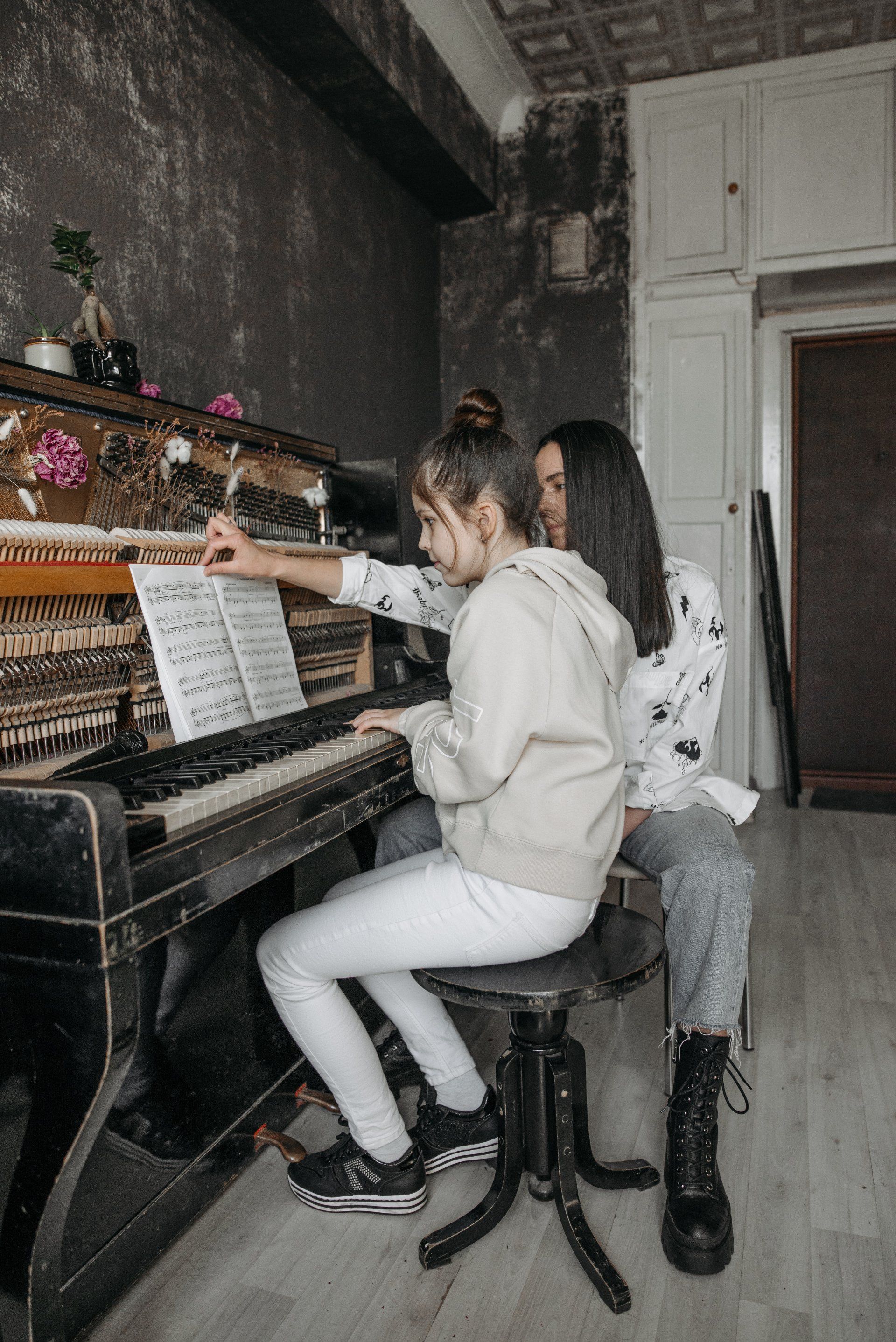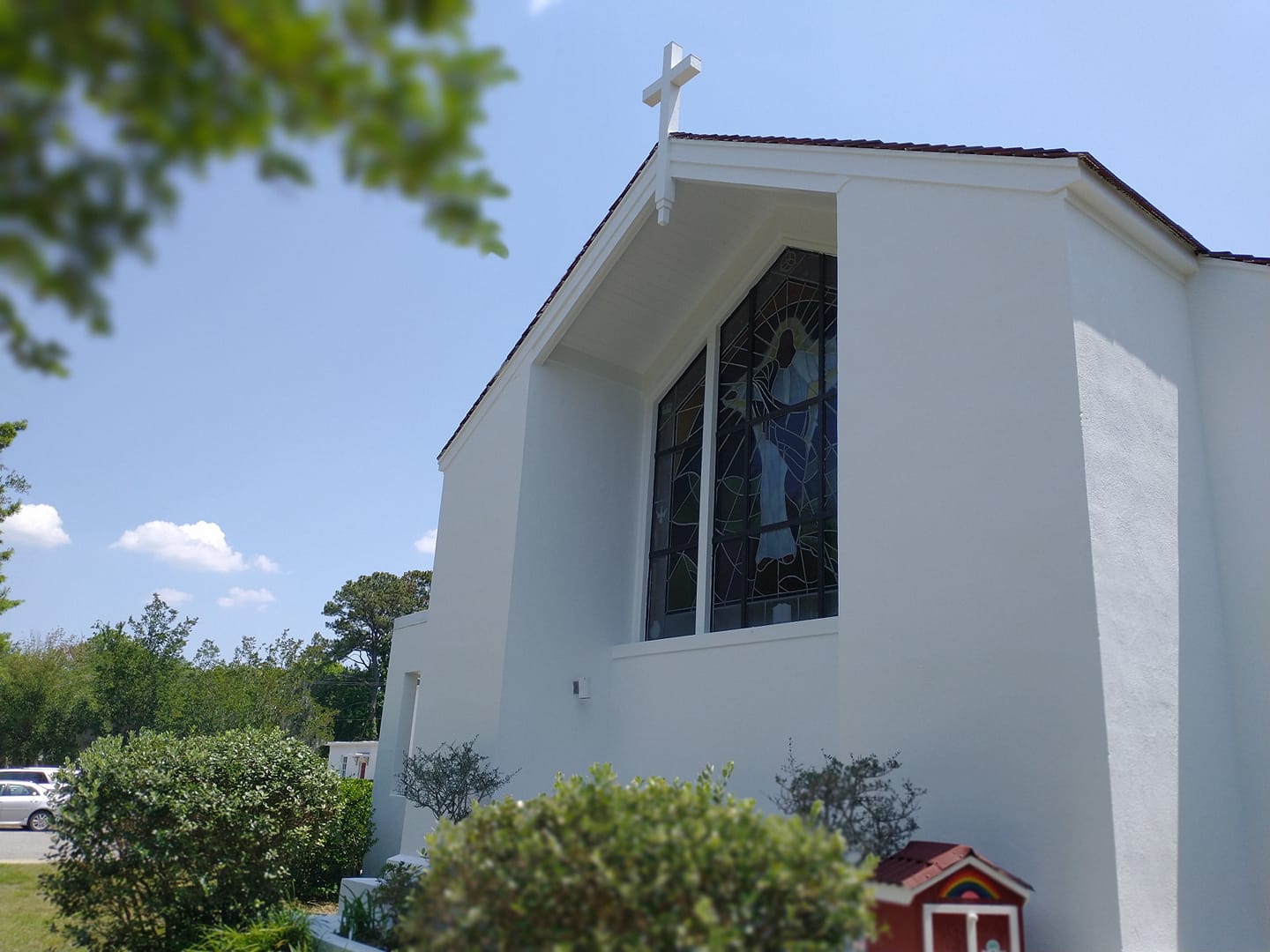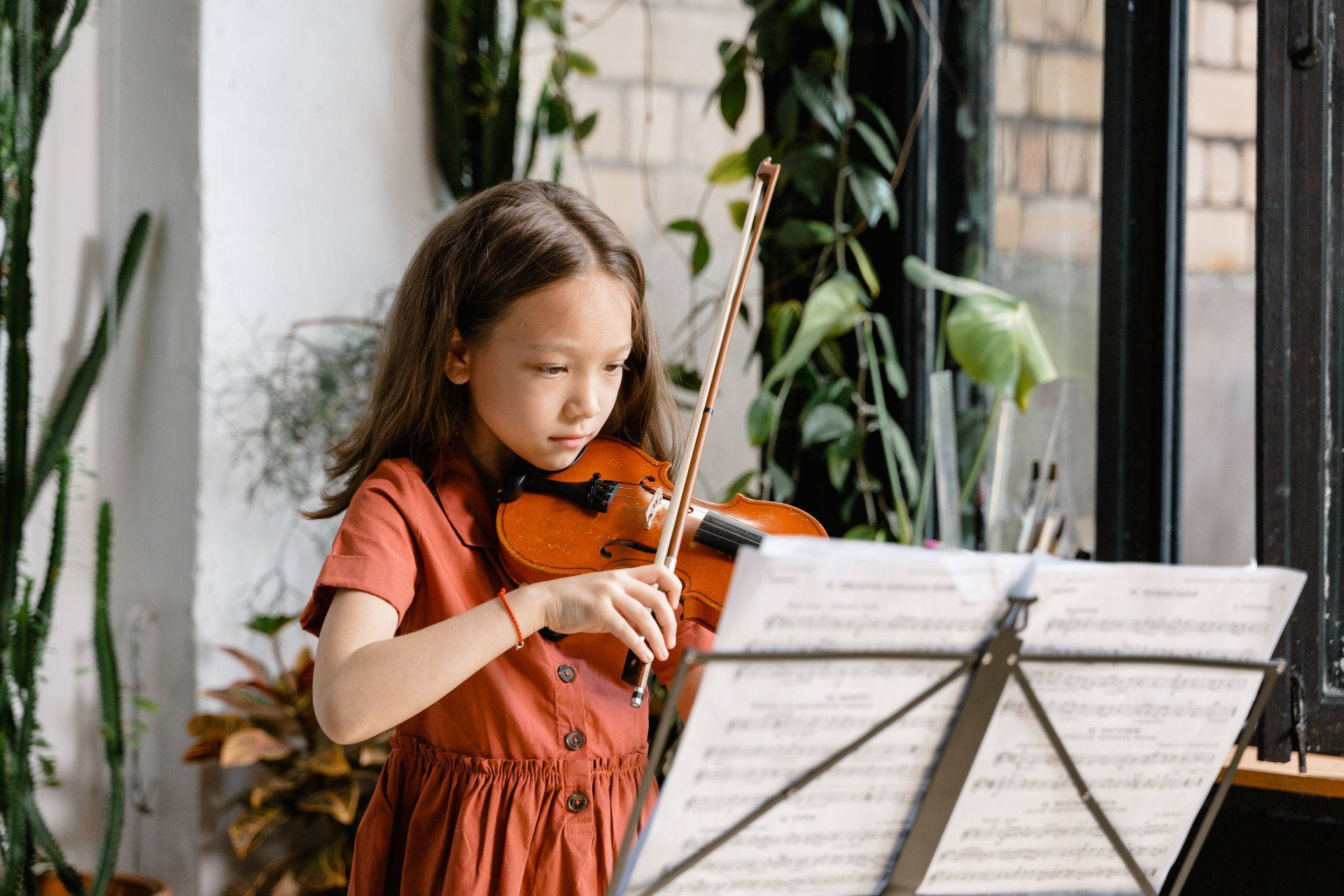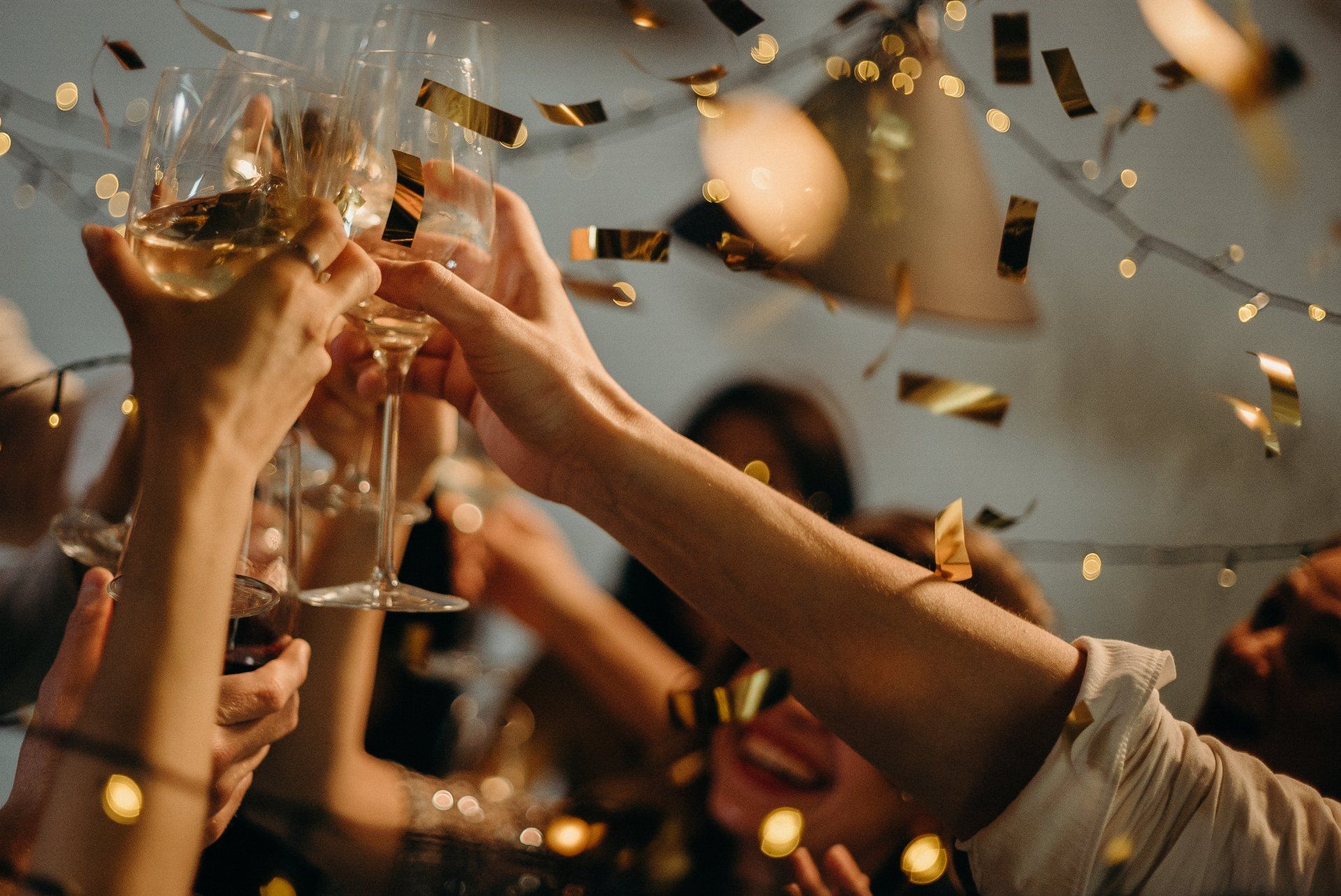Practicing When You Are Sick
Ava Cash • February 3, 2020
"NO" is never the right answer when your teacher asks, "Did you practice this week?" But it's often hard to practice when ill.
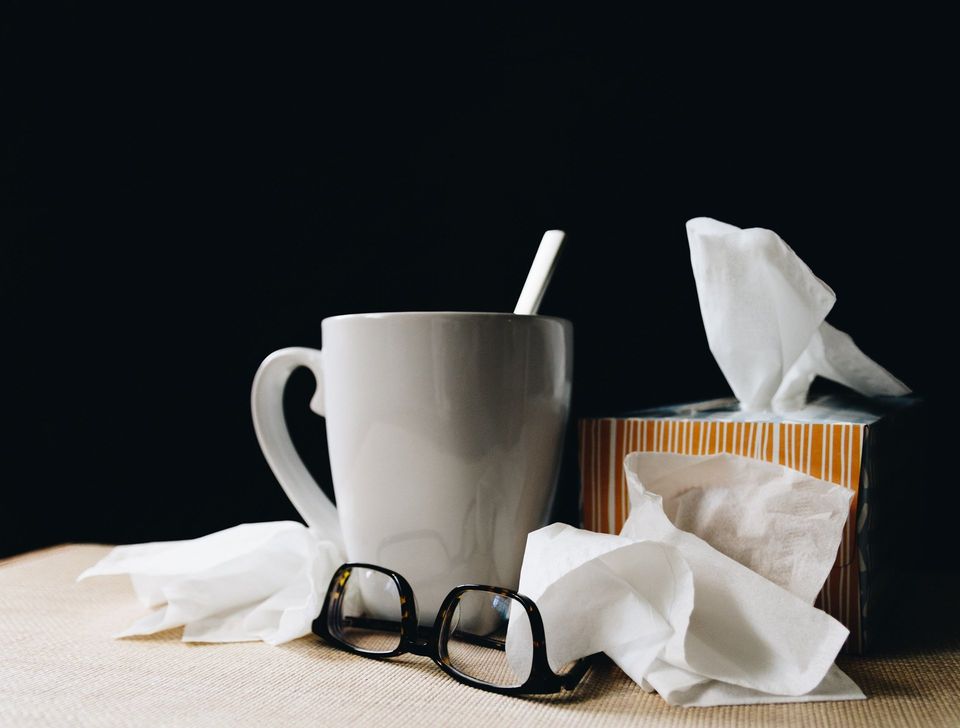
When we're sick, we're excused from school, from work, from responsibilities. We eat Popsicles, soup, and jello, and we drink tea and ginger ale. Life sucks for a little while, but we're given a little time to heal, to let our bodies recover from illness.
Unless you're a musician.
It's an age old adage that "You should only practice on the days that you breathe." As an asthmatic, I thought this was an excellent reason to excuse myself from practicing the violin on strenuous days, but alas, even asthma doesn't preclude you from the responsibility of your musical studies. No matter how sick I was, my teacher (and to an even greater extent, my mother) would not allow me to get away with refusing to practice. Even if I was at death's door, I still had to do my scales and etudes.
You hear a certain phrase a lot when you're sick; "At the very least." My mother would say, "At the very least, just play through your concerto," or "At the very least, practice your scales." Sickness, according to my memories, seemed to be a time for compromise. The problem was, with these compromises, it seemed pointless- if I didn't practice the full amount I normally might, I would backslide anyways. So, what was the point of these half-hearted efforts to do "The Very Least"?
The problem with "The Very Least" is in its very nature- that you are doing the least you can do. Or rather, it seems as though you are doing the least you can do. In reality, however, "The Very Least" often seems like far too much effort. Exhaustion overwhelms you as soon as you even think about doing "The Very Least", contrary to the verbiage. On the one hand, you know that you are doing very minimal work- if you can even call it work- and on the other hand, you know that it is a lot of effort. There's no winning here. No matter what, you feel as though you are a failure.
Unfortunately, taking time off from practice has massive and very visible drawbacks. Heifetz once said, "If I don't practice one day, I know it; two days, the critics know it; three days, the public knows it." This could be rethought for the average student as, "If I don't practice one day, I know it; two days, my mother knows it; three days, my teacher knows it."
The all important question remains; How do you practice the violin when you're sick?
Ask yourself, how do you practice the violin when you're not
sick? Look at what you do when you are in tip-top shape, 100% healthy. Do you have a routine, and a general style of practice, a set method that you follow? Or are you just kind of doing... whatever? The ways you practice when you are healthy determine your standards to which you compare yourself when ill. Personally, I start with a rousing bout of scales and arpeggios, then I move on to whatever etudes I am struggling through at the moment, focusing on whatever technical issues I am amending, and finally, I set goals for my current repertoire works, and strive to meet those goals before I finish for the day. I write down my progress daily, in a journal (that I would very much like to set on fire, as it causes a lot of frustration to chart my plateaus, but I will not, because it is an incredibly useful tool).
My style of practice when healthy is very goal oriented, focusing on understanding technical aspects of the piece, and really applying them in a methodical manner. When I'm sick, I cannot accomplish these goals- it's far too much energy to expend at once.
Right now, I have the flu. If you've ever had the flu before, you know how horrible it feels. Your entire body aches, your head feels like it's filled with lead, all the way up your nose, and your lungs are suddenly that of a coal miner. Needless to say, setting a technical goal with a concerto- currently, for me, the Bruch concerto's third movement- is not realistically achievable.
So instead, I've been practicing to supplement my usual studies. I've played my scales and arpeggios each day- slowly, so as not to overdo it, and to really hone in on my intonation- and I've then put the violin down, and focused on score study. My concerto has an immense orchestral part, but I'm focusing my attention on the violin. I've spent my downtime listening to recording after recording of this concerto, one of the most beautiful ever written, noting the little nuances each artist painstakingly demonstrates in their take on a classic.
Essentially, while I'm sick, I'm working on analyzing the music itself, the techniques I need to better develop, and the musicality that will go into it once I've learned the technical stuff. It might not seem productive in the same sense as my usual practice, but this study will help guide me in my practice once I've recovered, allowing me to temporarily advance in this piece at a much faster pace.
You do not need to practice when you're sick the same way that you practice when you're healthy. It doesn't make sense to even try. Instead, take a moment to think about how you normally practice, and the ways that you can better prepare yourself to practice once you've recovered, while you're under the weather.
Are you the sort that wanders aimlessly, playing through old repertoire and hoping for the best? Then spend this time setting goals for yourself, writing up lists of pieces you'd like to learn, and pieces you'd like to improve, and how. Pick something new and easy, and start playing with it, to help inspire yourself to advance once you're better.
Are you the sort that has to get everything precisely perfect? Take this time to listen to recordings of your current piece, recordings of you playing your current piece- and then try to play your current piece, and record it. Analyze these recordings, and consider, where are you weakest? Where are you still strongest? Develop a plan to improve upon your weaknesses. Start working on it.
Are you the kind of person who never practices their scales? Guess what? You need to practice your scales, and you can do that when you're sick. It's completely and mindlessly simple, while being quite difficult to do perfectly. Really focus that intonation, and do nothing else- you'll still see improvement once you're better.
Do you always rush through things when you practice? Take this time to do what you normally do, just go slowly, very slowly, and take lots of breaks so that you do not get overwhelmed.
Do you always linger and hesitate in your practice? Try to go through your usual practice with more confidence, getting it over with as efficiently as you can, so that you don't overwhelm yourself with too much work.
Every individual is different. Just remember- while you're sick, your body needs a chance to heal, and that is the most important thing. Take that to heart, and use it, to develop your unique practice plan; just as your body is going to get better, so is your practice, and by extension, your music.
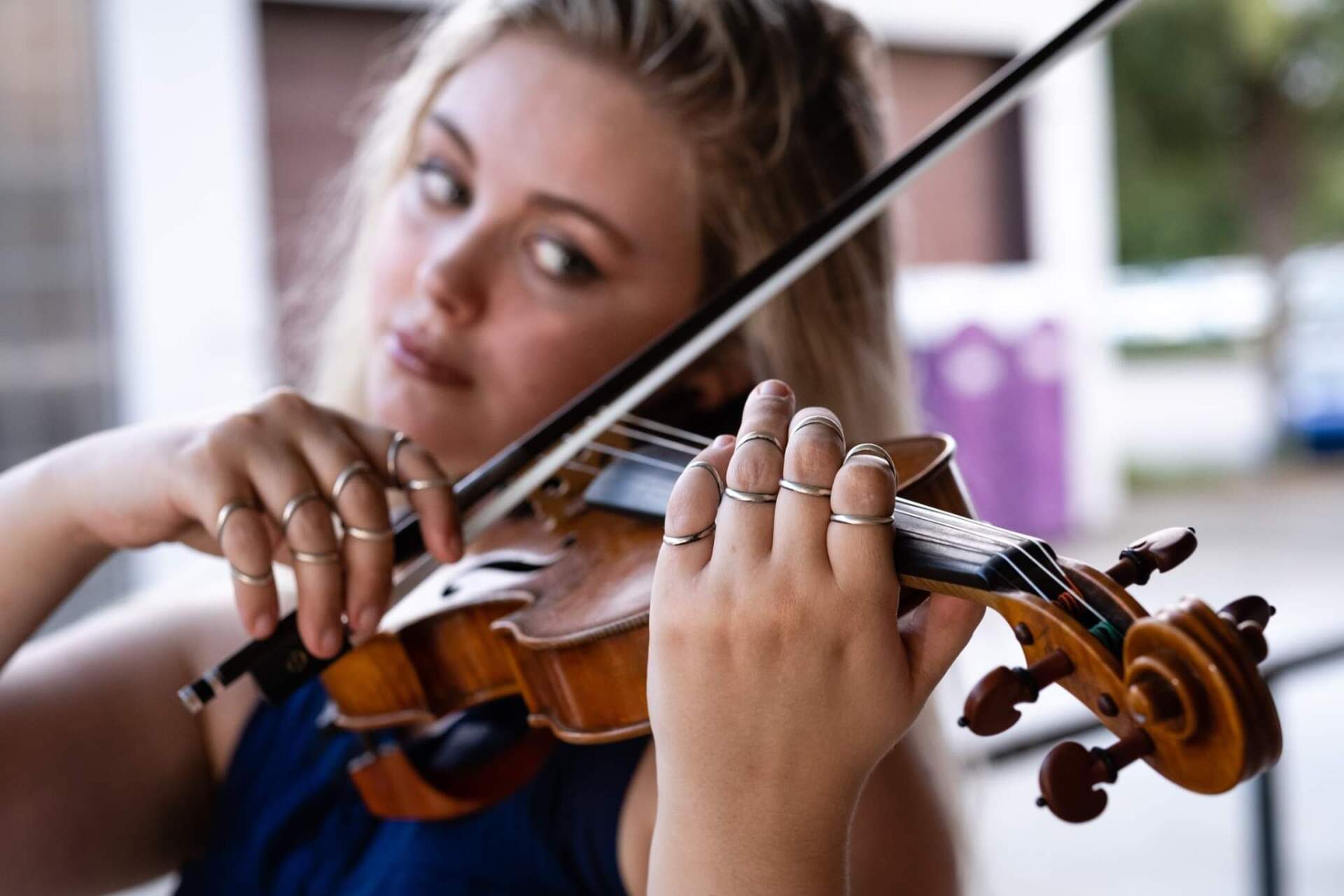
I did not realize that I was double jointed (otherwise known as 'hypermobility') until it began to adversely affect my violin playing in a noticeable- and legitimately painful- manner. It was my last year in college. To be specific, every time I curved or straightened my pinkies, they would "pop", and cause immense pain, and inflammation, that made my hands feel like they were on fire. By then, it seemed to be too late for me to fix habits in my playing that were causing me pain, so I looked for external means of stopping the pain. I ended up wearing these little splints on my pinkies, called 'Oval 8's' (pictured below), as an occupational therapist concluded that I was suffering from trigger finger in my pinkies. This configuration forced my pinkies to remain straight, effectively forcing me to learn to play without pinkies. Unfortunately, this kept my pinkies in a perpetual state of hyperextension, which was incredibly painful, and therefore quite pointless.. As my other six fingers began to pick up the slack, I started developing the same pain in my joints on those fingers, and the therapist declared that I must have trigger finger in every single finger on both hands.
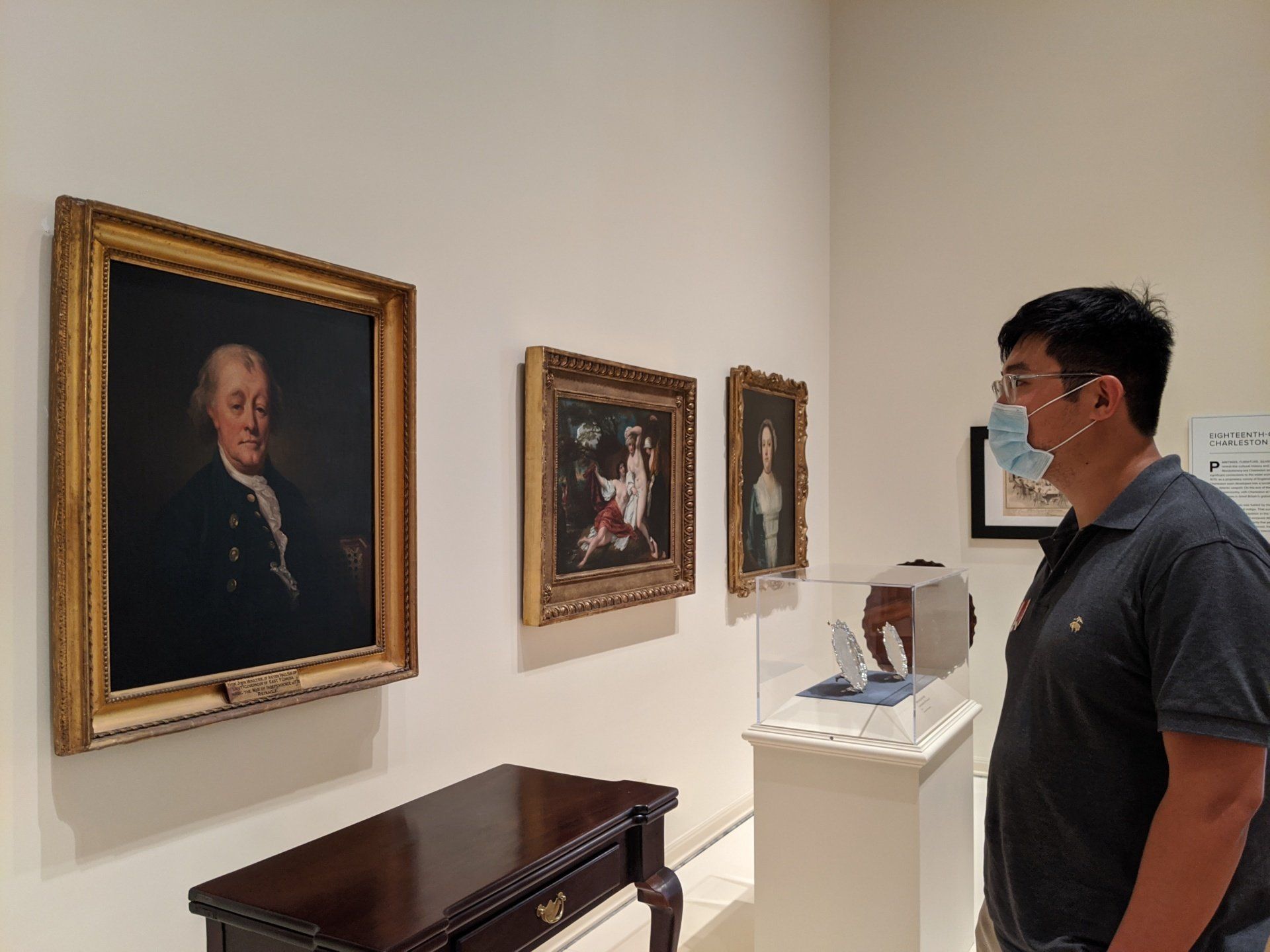
When I was little, the Gibbes museum had this miniatures exhibit. It was, and still is, my favorite thing I had ever seen in any museum, ever. Everything was tiny, like the entire exhibit was the excavation of the lilliputian society, a race of teeny little people who were hiding away in the shadows in the corners of the room, ready to jump back into their homes when we weren't looking. I loved this exhibit so much, I ended up having my picture taken in it, and it was shown on the Post and Courier:
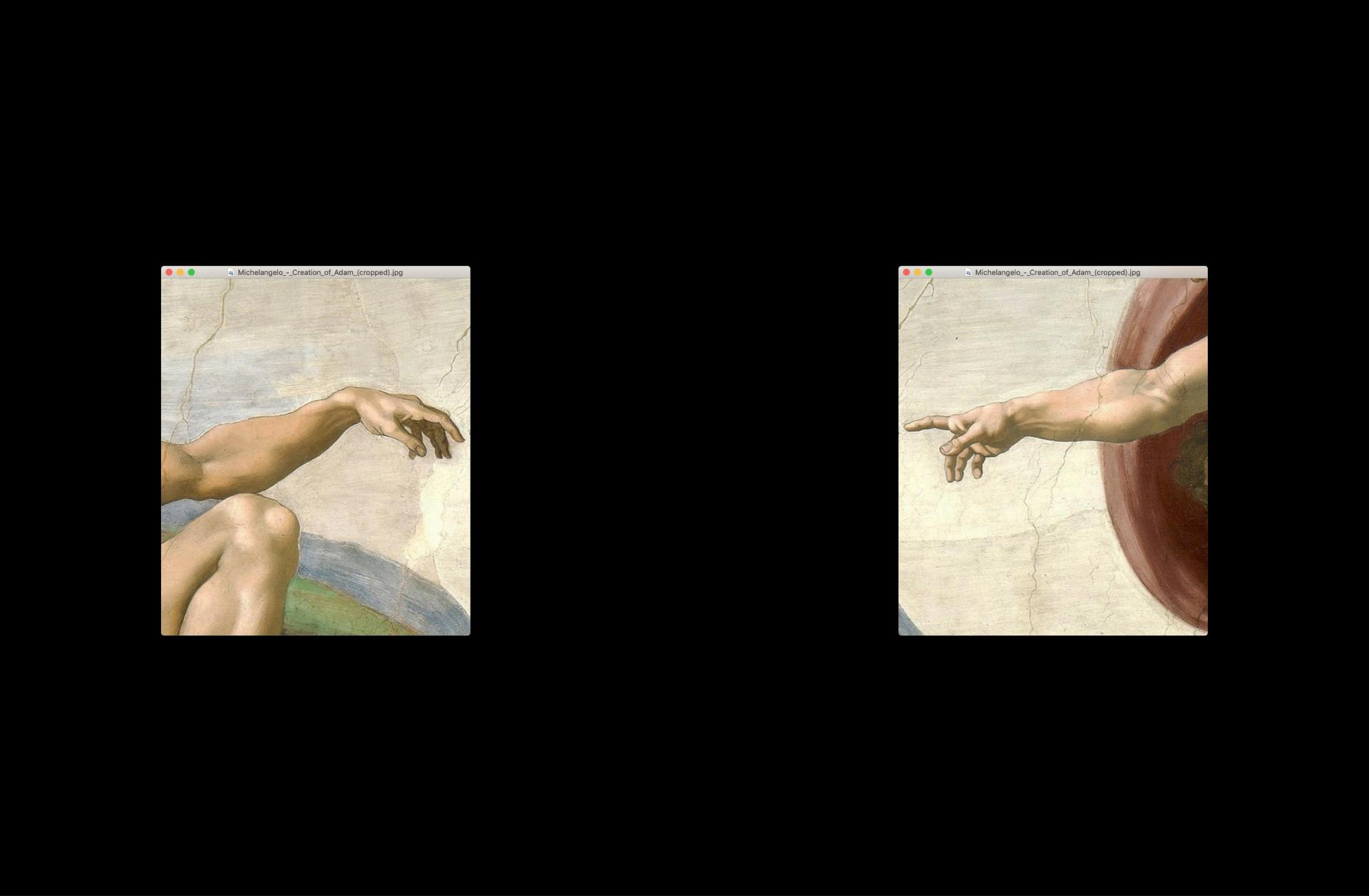
The Music Academy of the Two Rivers plans to reopen on June 1, 2020. Lessons should resume at that time, barring further announcements. We also plan to offer a new scholarship upon reopening, details below. At MATR, our mission is to bring happiness, peace, and achievement to the lives of the children of Charleston, through music. At this time, due to the influence of COVID-19 on all of our lives, we recognize that more than ever, people- especially children, who may not understand the full scope of the virus’s consequences- are in need of these things. Normally, our scholarship program is limited to applications from good samaritans who are aware of children in need; however, given the coronavirus, we are offering a special scholarship to which anyone can apply. This scholarship will give up to 10 children three full months (June, July, and August 2020) of free violin lessons, and instrument rentals. Any child under the age of 8 whose life was affected by the coronavirus is eligible to apply. The application asks for the child’s information, the parent’s information, and a 500-1,000 word statement detailing how the coronavirus has affected the child and their family’s lives. The deadline for application is May 22, 2020, at midnight. If your family suffered a loss, or even just the heavy emotional turmoil of a loved one in the hospital; if a member of your family is an essential worker or healthcare worker, who has been distanced from the rest of the family due to their job; if your family’s provider has lost their job, severely impacting your child’s quality of life; if your child themself was diagnosed with the virus; or if the virus has impacted your child and your family’s life in any other way, please apply. There are no strings attached; after these three months are over, there are no further obligations to the studio, and the child can drop out at any time with no penalties during the duration of the scholarship. We just want to help however we can, while we all heal. If you are interested in applying, the application is located here (CLICK HERE). With love, Savannah Cash UPDATE: 5/6 I thought I'd add in an FAQ, to address some of the questions that I've received. If you have any questions, please contact us through Facebook, email, or just give us a call. If only 10 people (or fewer) apply, will all of them get the scholarship? No. We will only grant the scholarship to those that we select from the applicants, and our limit is 10. How many lessons and instruments does this scholarship give? The scholarship will allow for unlimited lessons throughout June, July, and August 2020. Each student will begin with 30 minute lessons, once a week; if the teacher deems that the student can move faster, we will switch to 1 hour lessons, once a week. If the teacher deems that the student can move even faster, we can add in additional lessons as needed. As for instruments, the student will be given a violin their size when they advance to the actual instrument; the student and parent will still be responsible for the safety and care of the instrument. What is the monetary value of the scholarship? If the student does the minimum and sticks with 30 minute lessons once a week, the monetary value is approximately $400. If the student works hard, and the teacher moves them to hour long lessons twice a week or more, the value is approximately $1,400+. Essentially, this is an opportunity to really take advantage! Can I still apply if my child is already taking lessons with another teacher? We have a strict policy against poaching students from other studios. However, if you are already taking lessons with another teacher, we will take your child strictly in a tutoring position, maintaining an open line of communication with your primary teacher, so as not to overstep boundaries. What if we're not planning on continuing lessons after the scholarship ends? That's fine. There are no strings attached here- if you decide after 3 months not to continue, then you can quit. If you decide after 3 months to keep going, then we'd be happy to have you! It's up to you. This scholarship is an opportunity to bring your child happiness, peace, and achievement. It's meant to be for the benefit of the child; if it's not for you, that's fine, but we encourage you to continue if your child derives any of these benefits from music. How are you going to keep lessons safe while COVID-19 is still going on? All students and their parents will be encouraged, but not required, to wear masks. Only one parent/guardian is allowed to attend with the student, no siblings will be allowed to attend, unfortunately. Before and after each lesson, students and parents will be required to wash their hands. The teacher will guide the parent to assist the student, so there will be no physical contact. Any other reasonable accommodations requested will be considered. What's the catch? There is no catch. If you get the scholarship, you get 3 months of lessons, with no strings attached. If you want to quit at any time, you can. If you get to the end and decide to continue somewhere else, we'd be happy to give you a recommendation. If you decide at the end that you'd like to keep taking lessons with us, we'll happily welcome you in the studio. Can current students apply? And what about past students? Yes to all. Will the scholarship cover travel expenses? No. The scholarship will only cover the cost of lessons, and the instrument loaned from the studio. The parent and child will be responsible for their own travel, and any other non-lesson or instrument costs. That being said, there is no restriction geographically for this scholarship; as long as you are willing to travel the distance, you are eligible to apply. If I miss a lesson under the scholarship, can I get a makeup lesson? As long as the scholarship term has not ended (August 31, 2020), and 48 hours notice is given before the cancelled lesson, the teacher will find a time to make up the lesson. If the scholarship term has ended, or adequate notice is not given, the lesson will not be made up. I have a vacation (or some other commitment) planned during the scholarship term, can I get it extended into September, or shifted into the school year? The scholarship term will remain fixed, June/July/August. This scholarship is meant to last the summer term, so that your child has more time to dedicate towards learning a new skill- it is much easier to start the violin outside of the school year, than during the school year.
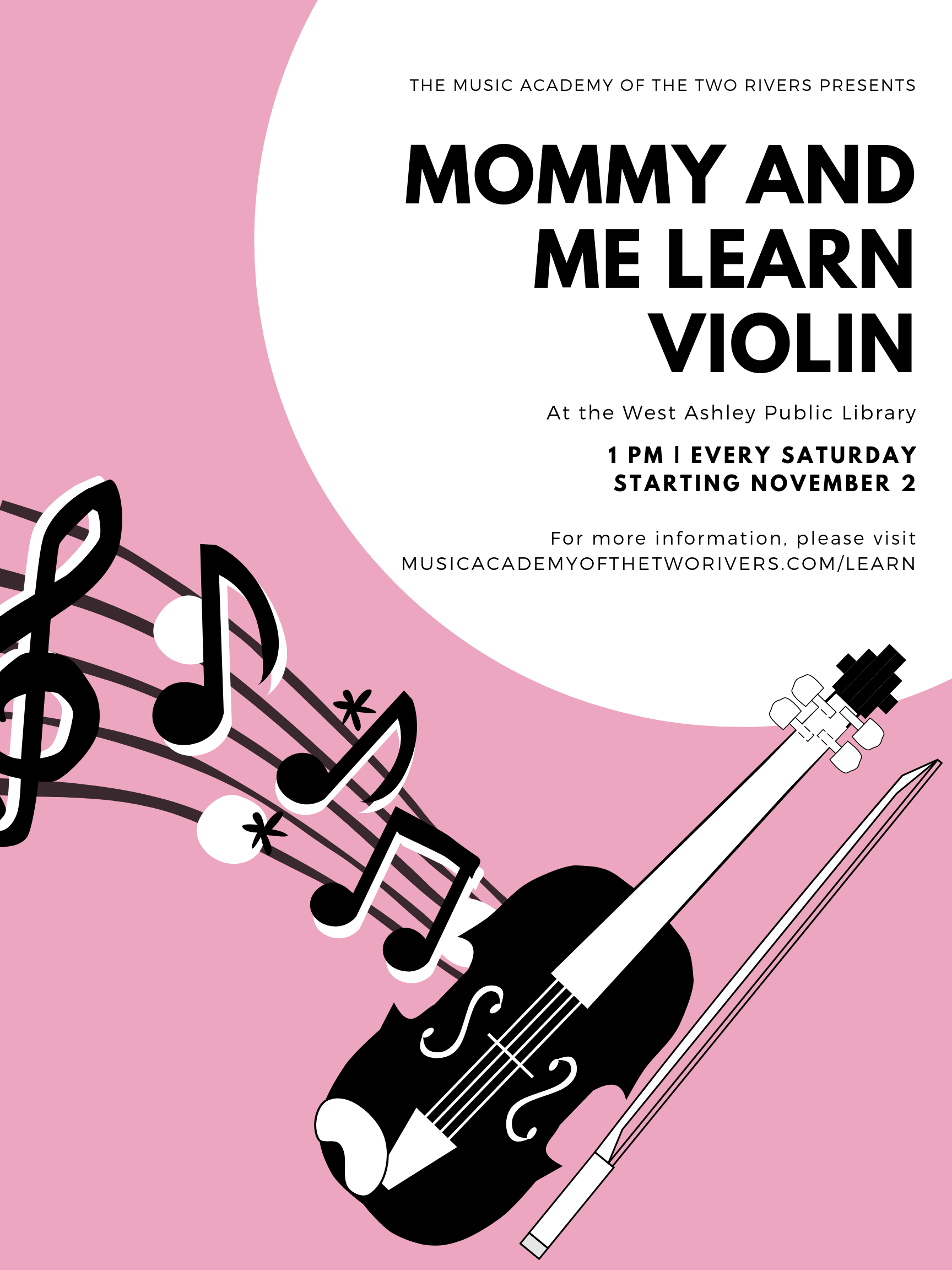
WHO? This class is for parents and children up to 6 years old. Neither the kids nor parents need any prior musical experience- and you definitely don't need to bring an instrument! All materials will be provided by the instructor, Miss Cash, a violinist studying at the College of Charleston's in their Artist Certificate post graduate program, and the violin teacher of the Music Academy of the Two Rivers. WHAT? These classes will be 30 minutes to an hour, depending on attendance. Every class will be unique, and all classes will be drop in friendly. You can attend as many or as few as you'd like, at any point! The point of the classes is to teach the little ones everything they need to know before starting to play the violin in formal lessons. They'll learn how to hold the instrument, both the violin and the bow, they'll learn basic rhythms, form, and composition, among other essential skills. Look at this class as an optional prerequisite to taking private lessons- a headstart if your child wants to learn to play! WHEN? Starting November 2, these classes will occur every Saturday, at 1 PM! If a class is cancelled, this will be announced through the library, and on our Facebook page. WHERE? The West Ashley Public Library, located in South Windermere. The address is 45 Windermere Blvd, and you can find it at the back of the shopping center. I highly recommend grabbing lunch at the Three Little Birds first, before you head to class- it's nearly right next door! WHY? Miss Cash, the teacher, is trying to open up the studio to younger students whose parents may be hesitant to start formal lessons. This is an opportunity for parents and children to "audition" the violin, to see if it is right for them. If it isn't, no harm done, no money lost- and if it is, any students who want to start formal lessons with Miss Cash can do so with a special discount!
